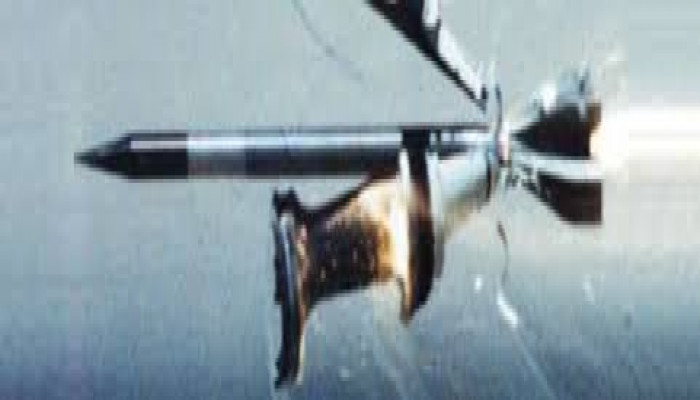Russia launches production of 3VBM17 Mango Ammunition in India
- In Reports
- 10:31 PM, Jul 06, 2024
- Myind Staff
On July 4, 2024, Rostec, a Russian state corporation, announced that its subsidiary Rosoboronexport had initiated the manufacturing of 3VBM17 Mango ammunition in India. These munitions feature armour-piercing sub-calibre projectiles and are specifically designed for targeting armoured vehicles equipped with advanced protection systems. This initiative is part of India's Make in India program.
"The 125mm Mango rounds are compatible with India's T-72 and T-90 tanks, crucial assets for the Indian Ground Forces, which possess a significant inventory of these Russian tanks.
Sergey Chemezov, CEO of Rostec State Corporation, emphasised Rostec's extensive experience in forming industrial partnerships with allied nations. These collaborations often involve technology transfer and knowledge sharing, empowering the importing country to enhance its own production capabilities. This strategic approach underscores Rostec's competitive advantage as a leading provider of defense solutions.
Chemezov highlighted Rostec's successful track record in collaborating with India, including the licensed production of T-90 tanks and Mango ammunition featuring armour-piercing projectiles. Future plans include the establishment of gunpowder production facilities in India, further advancing the localisation of Mango shell manufacturing."
The Mango rounds, specifically the 3VBM17 ammunition, utilise the fin-stabilised armour-piercing sub-calibre projectile known as 3BM42. This projectile also referred to as "Mango," is categorised as an APFSDS (Armour-Piercing Fin-Stabilized Discarding Sabot) round that was introduced into service in 1986. Its primary design objective is to penetrate modern tanks equipped with composite armour, including non-explosive reactive armour (NERA) such as Chobham armor.
The 3BM42 Mango projectile features a core composed of double tungsten alloy, encased in a low melting point alloy and enveloped by steel. This construction is specifically engineered to enhance the projectile's penetration capabilities against heavily armoured targets.
The Mango projectile, originally of Soviet design, has dimensions of 532 mm length and a diameter ratio of 17:1. It weighs a total of 20.4 kg, with the projectile itself weighing 4.85 kg and 7.05 kg including the sabot. Notably, the Mango achieves an impressive initial velocity of 1700 m/s, generating a muzzle energy of 7.1 MJ.
In terms of penetration capability, the Mango round can penetrate 230 mm of standard steel at a distance of 2000 meters at a 60° angle. At the same distance but at a 0° angle, it can penetrate up to 520 mm of standard steel. Despite its widespread use, the Mango projectile is gradually being replaced by newer models such as the 3BM59/60, which incorporate advancements in technology and materials to enhance penetration performance and overall effectiveness.
"Another significant milestone in Russian-Indian cooperation aligned with the Make In India and Self-Sufficient India initiatives has been reached," stated Alexander Mikheev, CEO of Rosoboronexport. He highlighted the establishment of crucial production facilities for Mango tank rounds at an Indian defense holding company, enabling the adoption of transferred technology and the initiation of local production.
"Our efforts in India showcase a comprehensive industrial partnership, fostering joint projects across all branches of the armed forces. This collaboration reflects an unprecedented level of cooperation between enterprises from both countries in the global market," Mikheev added.
This development underscores the strategic alignment between Russia and India in enhancing indigenous defense manufacturing capabilities, supporting India's initiatives for self-reliance and promoting bilateral cooperation in defense technology.
Image source: Indian Defence News







Comments